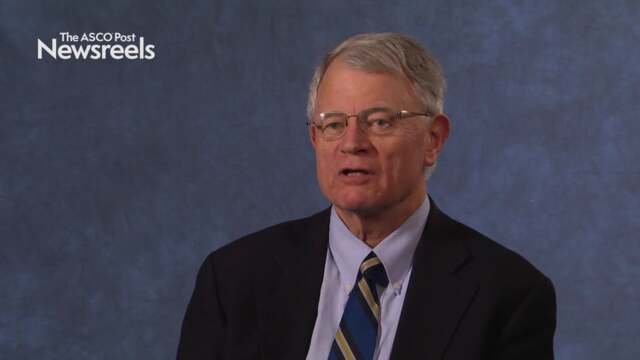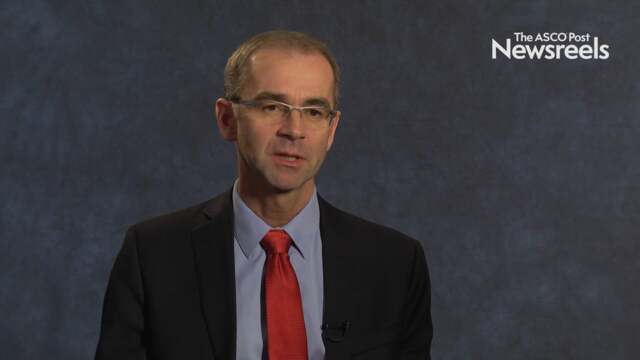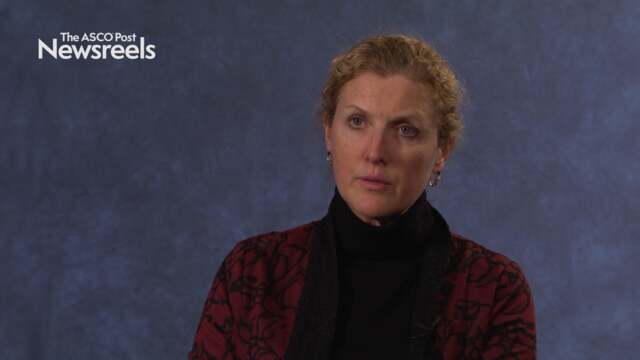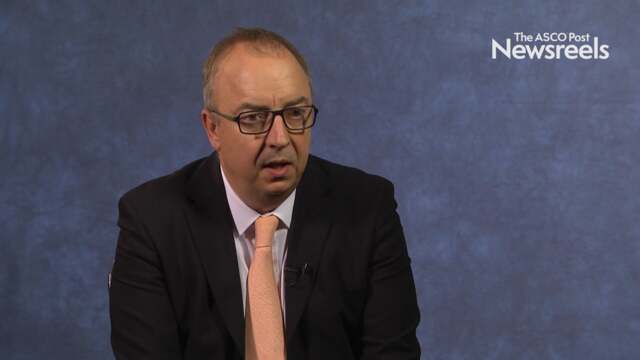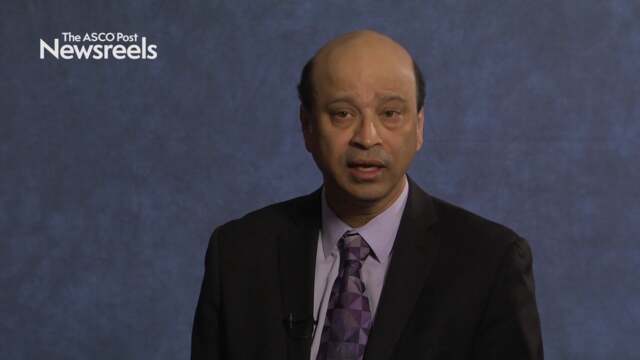Melinda Telli, MD, on Triple-Negative Breast Cancer: New Clinical Approaches
2017 San Antonio Breast Cancer Symposium
Melinda Telli, MD, of the Stanford University School of Medicine, discusses the current status of treatment for advanced TNBC, and new therapeutic strategies now being used for better outcomes.
Louis Fehrenbacher, MD, of Kaiser Permanente, discusses study findings comparing adjuvant chemotherapy with doxorubicin and cyclophosphamide followed by weekly paclitaxel—or docetaxel and cyclophosphamide—with or without a year of trastuzumab in women with node-positive or high-risk node-negative disease (Abstract GS1-02).
Wolfgang Janni, MD, PhD, of Ulm University, discusses study findings that showed extended adjuvant bisphosphonate treatment over 5 years in early breast cancer does not improve disease-free and overall survival when compared with 2 years of treatment (Abstract GS1-06).
Lisa A. Carey, MD, of the University of North Carolina, discusses the long-term follow-up of CALGB 40502/NCCTG N063H, a phase III study of weekly paclitaxel compared with weekly nanoparticle albumin bound nab-paclitaxel or ixabepilone with or without bevacizumab as first-line therapy for locally recurrent or metastatic breast cancer (Abstract GS3-06).
Michael Gnant, MD, of the Medical University of Vienna, discusses phase III study findings on giving an additional 2 vs an additional 5 years of anastrozole after the first 5 years of adjuvant endocrine therapy (Abstract GS3-01).
Debu Tripathy, MD, of The University of Texas MD Anderson Cancer Center, discusses phase III study findings on first-line ribociclib vs placebo with goserelin and tamoxifen or a nonsteroidal aromatase inhibitor in premenopausal women with hormone receptor–positive, HER2-negative advanced breast cancer (Abstract GS2-05).
